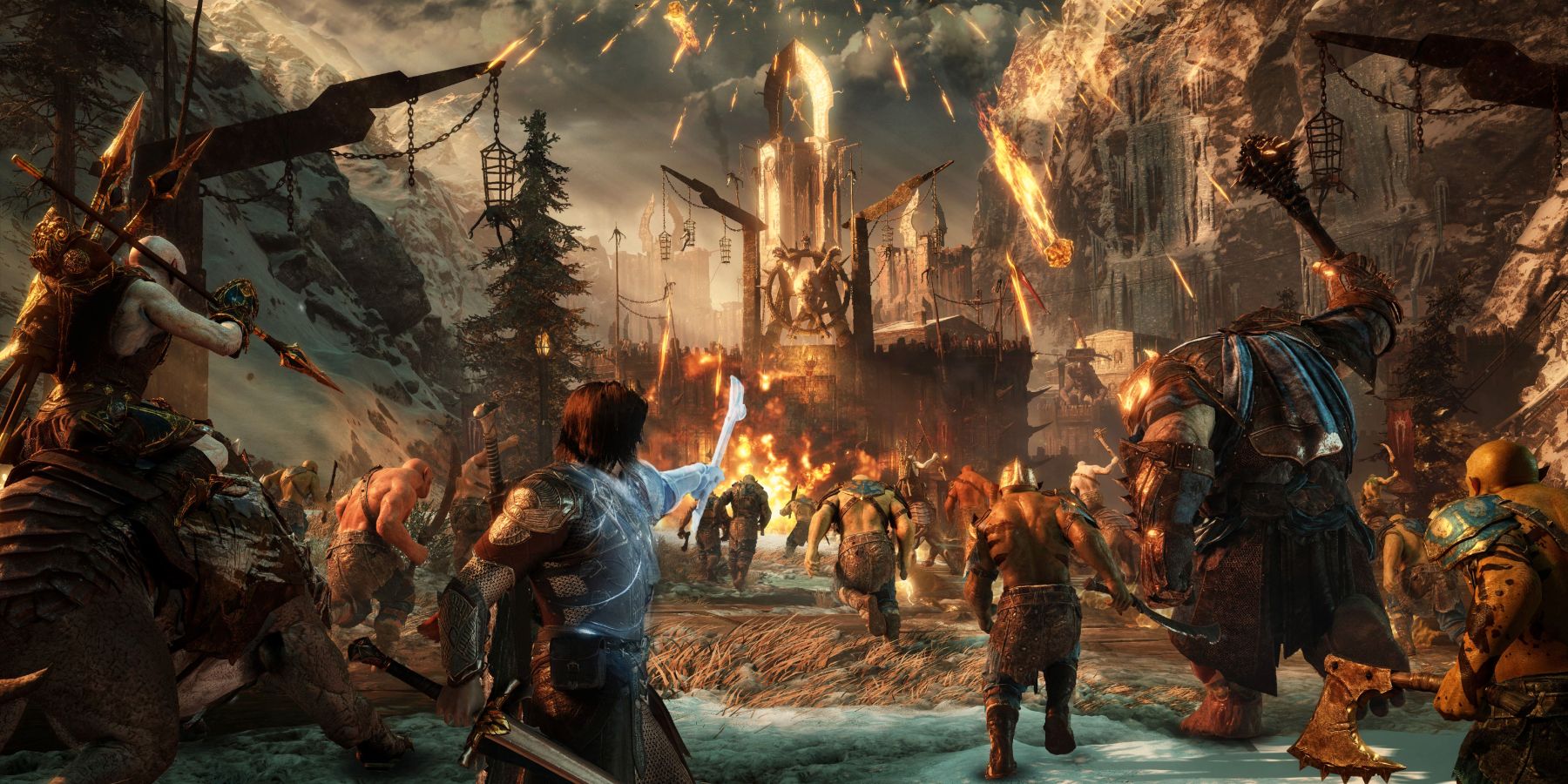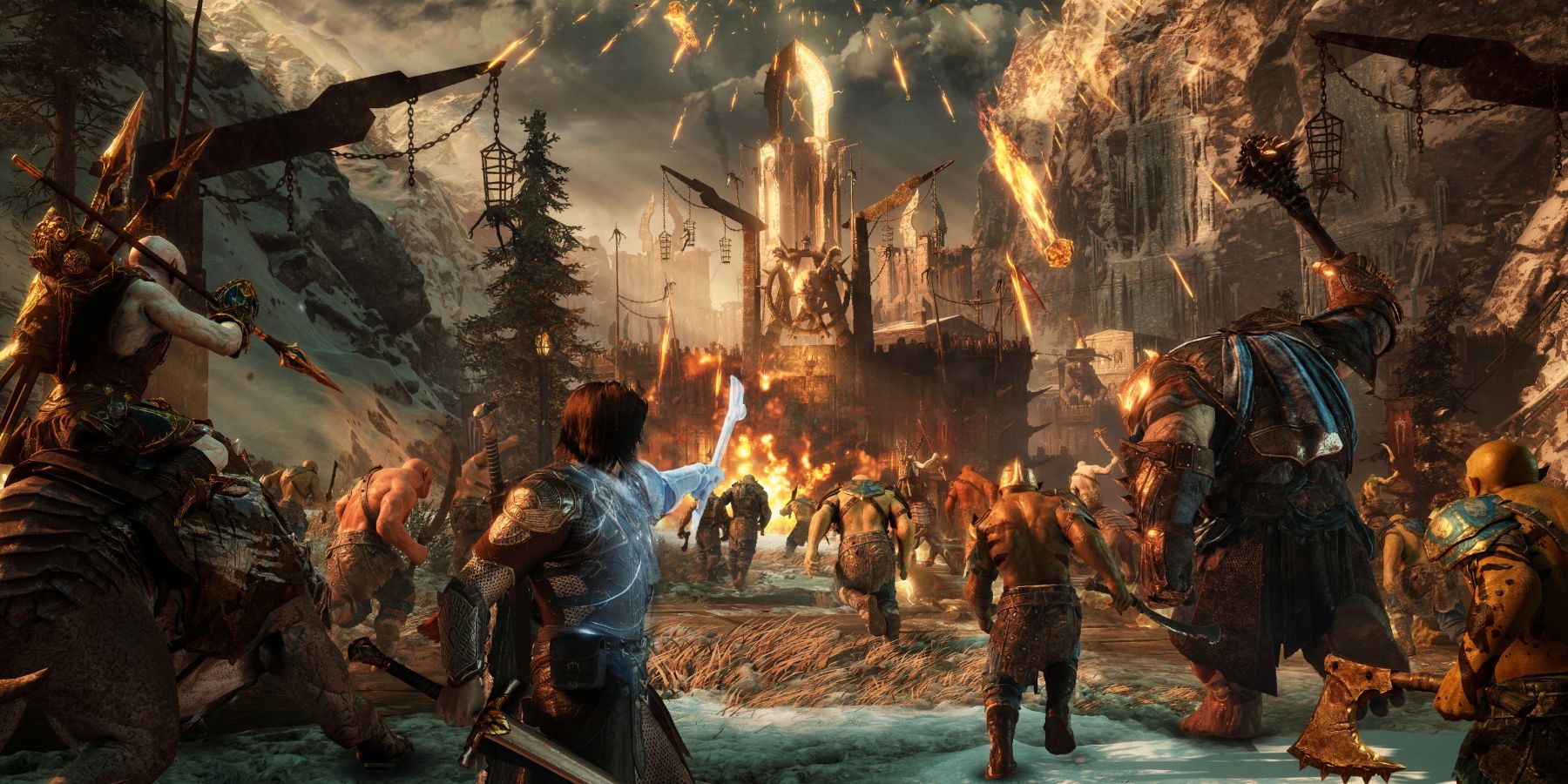
The Nemesis System was developed across Middle-Earth: Shadow of Mordor and Middle-Earth: Shadow of War, creating dynamic stories with otherwise procedurally generated orcs by factoring in their relationships to one another, their ever-changing loyalties, their fears, and their desire for revenge. Although the system was patented by Warner Bros, it hasn’t stopped the games' innovation from pushing other developers to find creative new ways to tell dynamic stories in their worlds.
Bethesda in particular could learn a lot from the Nemesis System as it embarks on two major projects which will determine its success in the 2020s. Both Starfield and The Elder Scrolls 6 need to figure out ways to take their open worlds to the next level while still focusing on the freedom that defined earlier Bethesda titles. Mechanics which create their own stories like Middle-Earth: Shadow of War’s Nemesis System could be exactly what the studio’s upcoming projects need to forge a path into the future.
RELATED: How Playing an Argonian in The Elder Scrolls 6 Will Likely Differ From Skyrim
The Nemesis System

The Nemesis System takes the core mechanics of Shadow of Mordor and – to a greater extent – Shadow of War, and ingeniously uses them as the basis for returning NPCs and their dialogue throughout the rest of the player’s adventure. In many cases, for example, the player is forced to run away from combat encounters where they’re being overwhelmed. The game will register this response and the exact encounter the player ran away from. Some time later, they may encounter the same procedurally generated enemy, who will reference their cowardice.
Similarly, if the player exploits the fears of an orc captain, such as fire, the next encounter with that orc captain may begin with one of his underlings stabbing in the back and taking his place. Instead of relying on dialogue alone for roleplay in Shadow of War, the game uses its core combat mechanics as the basis for its generated storytelling. Sending a spy to infiltrate the orcs, for example, can lead to orcs grimly referencing the discovery of that spy.
In part, the Nemesis System relies on Shadow of Mordor and Shadow of War’s main narrative conceit, that its protagonist Talion’s deaths and respawns are a canonical part of the story due to his position as a “wraith.” Talion’s unique role is also used to explain the return of certain orcs after the player has killed them, with undead versions coming back and claiming that Talion’s magic somehow left them unable to truly die.
Over the course of the game the NemesisSystem makes what could be generic combat encounters feel extremely personal. Instead of the story and combat feeling like two totally separate parts of the game as it does in many RPGs, the player’s actions in combat directly feed the dynamic story. The Nemesis System may be patented, but there are some great ways its general principles could be applied to Bethesda’s formula.
The Bethesda Formula
Bethesda’s open-world RPGs focus on freedom above all else. Even the player’s major decisions rarely impose themselves on the story too much. The Dragonborn can kill the Emperor as a member of the Dark Brotherhood, but that doesn’t stop them from signing up for the Imperial legion immediately afterwards, and the effect of the Emperor's death on the war is practically non-existent. While RPGs from studios like BioWare try to put the player at the center of a story that reacts to the player’s major decisions – made almost exclusively through dialogue options – Bethesda has always gone a different route.
The world itself is the star of Bethesda’s best games. When it comes to the player character’s personality or even the emotional stakes of the story, that’s largely left up to the players to imagine all that themselves. While the studio’s worlds are very open, however, they’re rarely as dynamic as promised. Meeting NPCs out in the world usually leads to one of just two scenarios – a prescripted quest, or a battle to the death. This is where the lessons of the Nemesis System could teach Starfield and The Elder Scrolls 6 a lot.
RELATED: The Elder Scrolls 6 Needs to Take One Cue From D&D
What The Nemesis System Can Teach Bethesda

The Nemesis System relies on Shadow of War having more ways for combat to end than the death of the player or their enemy. These involve the humiliation of an orc or the player, the orc or player running away, and the fact that in the game’s story characters are constantly coming back from the dead. While Starfield and The Elder Scrolls 6 shouldn’t just copy Shadow of War’s wraith premise and have a canonically unkillable protagonist, the games could explore more ways for combat to end than death.
If a Skyrim player finds a camp of bandits, jumps out in full Daedric armor, and uses the shout Slow Time to kill all but one of the bandits with a bow and arrow in a matter of seconds, the last man standing will invariably attack if they still have full health. Sometimes enemies will shout “I submit” and make a break for it if near death, but it would be far more interesting if NPCs could also attempt to bargain, offer their services to the player, or take off swearing revenge based on the player's actions in combat.
It would be even better if those same NPCs returned later. If the player let the last surviving bandit go, they might come back with a new group to take them down. If the player recruits them, they might wait until the player’s back is turned to strike. Like the Nemesis System, Bethesda's open worlds could also apply different characteristics to the enemies players meet in the world. In Shadow of War, otherwise generic enemies will be identified as drunks, maniacs, advisors, cowards, and so on, and their dialogue is informed by their personality.
Bethesda’s strength isn’t scripted storytelling, but finding ways to make its worlds and its random NPCs generate their own stories could go a very long way to making Starfield and The Elder Scrolls 6 feel like a true generational leap forward from Skyrim.
Middle-Earth: Shadow of War is available now on PC, PS4, and Xbox One.
MORE: Skyrim Doesn't Need Another Major Update, But It's Still Welcome


